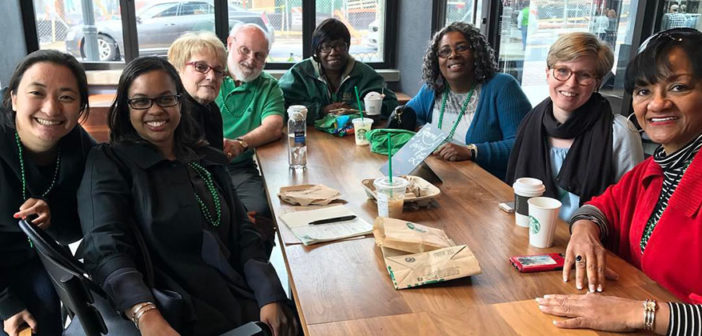Unique challenges arise when a church is served by a pastor from a different racial or cultural background or as it struggles to engage a changing community. Jasmine Smothers, the first African American lead pastor of First Atlanta United Methodist Church, shares her perspectives on ministry in cross-cultural settings.
Congregations and pastors often struggle in cross-cultural ministry settings for the simple reason that people fear what they do not know. While change and transformation are at the heart of the gospel, they can be very difficult for human beings. So, it’s important to talk about and live change in such a way that it is transformational rather than scary or something to be avoided.
Cross-cultural ministry is deeply contextual. It’s an ongoing process of figuring it out as you go along.
Focusing on Mission and Vision
One way to prepare a congregation for cross-cultural ministry is to focus intentionally on mission and vision. Why do we exist as a church? Why do we do what we do? What are the practical and tangible ways we are called to be disciples and to make disciples in our current context? We need to be clear about why we open the doors of the church every day if people are to move beyond their comfort zones and become relevant and engaged in their community again.
Acknowledging the Need for Change
It takes extraordinary spiritual maturity for people to change something they don’t see as broken. It’s often stress or tragedy that cause us to sit up and pay attention to the need for change — when worship attendance gets low, when money gets tight, when you begin to doubt that your congregation’s legacy can survive. At First Atlanta, the congregation affirmatively decided that it didn’t want to die. But an openness to change can also come through systematic preaching, learning, planning, and implementing. There are people in every church who really do believe and follow the mandates of Christ to love our neighbors and who will call the church to account for not doing so.
Worship
One challenge in a cross-cultural ministry setting is getting people to buy into a variety of worship styles and music. At First Atlanta, we sing hymns in a lot of different ways — we do really high church and really fun, flexible, post-modern church. Regardless of the style, we strive for excellence because, if you do it really well, then people simply can’t complain about it. When people see that diverse types of music and worship are leading people to the heart of Jesus, they’ll understand why it’s important, even if they don’t like it.
A smaller congregation with fewer resources to support excellence in worship and music might seek to interact with a local school. Schools have a pulse on what’s relevant to the community, so a strong partnership with the school’s music or drama department can strengthen the church’s worship and music. You need to be willing to try and evaluate new ideas. You need to be humble enough to acknowledge that some of the best approaches may come from beyond your congregation. It’s important to get outside the walls, build relationships, and learn some new skills.
Keep Things in Perspective
Pastors serving in cross-racial settings need to understand that not every issue or problem is about race. They need safe spaces to let go of frustrations and regain perspective and some really good friends who can objectively say, “I don’t think that’s really about you.” It helps to grow a thick skin and stay deeply reflective and prayerful.
Cross-cultural ministry is deeply contextual. So, it’s important to not try to replicate what someone else is doing, but rather discover what works in your setting. It’s an ongoing process of figuring it out as you go along. But sharing ideas, stories, and resources can provide help and inspiration.
Related Resources
- “Multicultural Goes beyond Race,” a Leading Ideas Talks podcast featuring Jasmine Smothers
- For Multicultural Churches — A Variation on the Golden Rule by Douglas J. Brouwer
- Suggestions for Churches with a Clergywoman, a free “To the Point” Lewis Center resource






